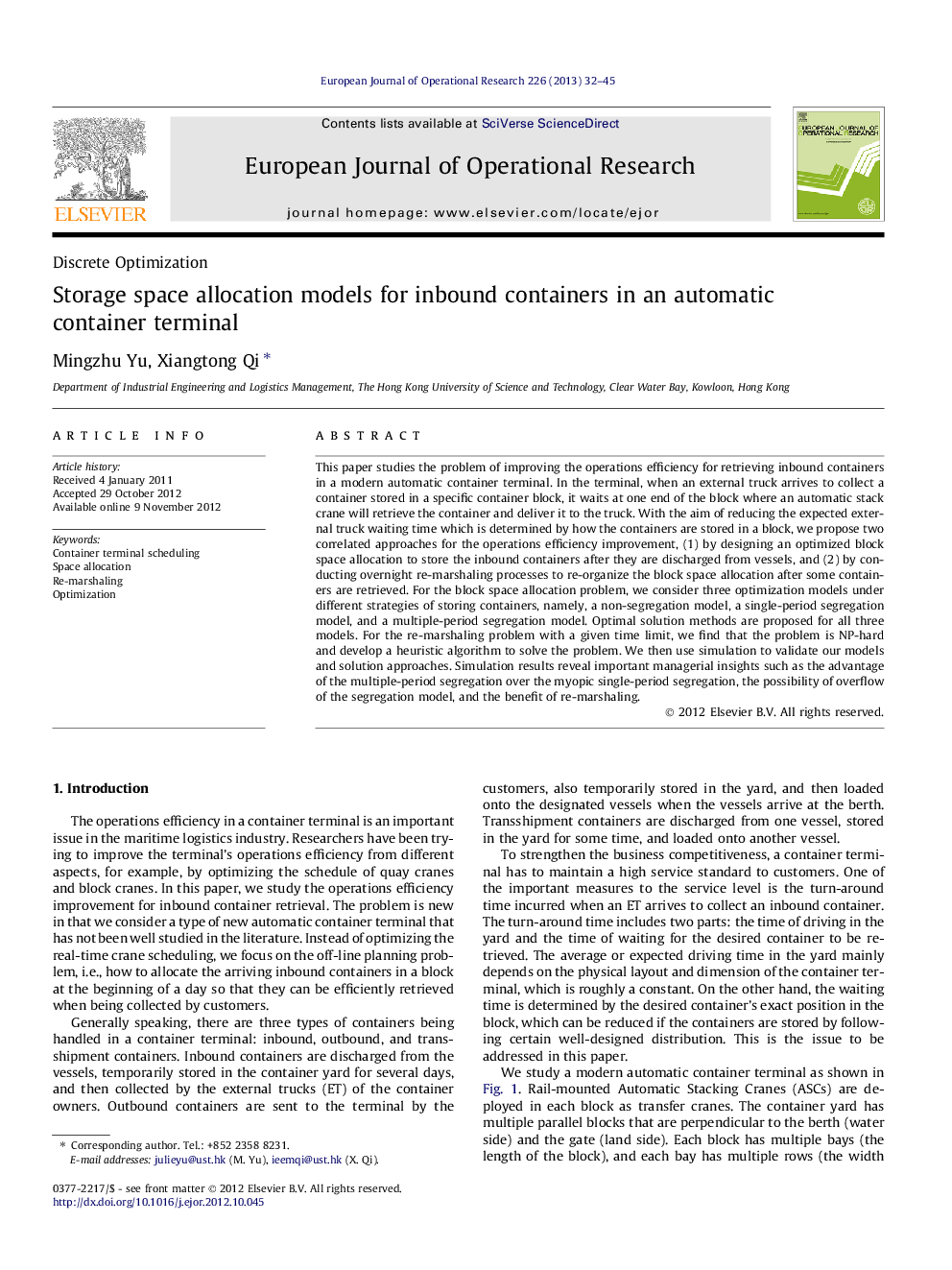| Article ID | Journal | Published Year | Pages | File Type |
|---|---|---|---|---|
| 478324 | European Journal of Operational Research | 2013 | 14 Pages |
This paper studies the problem of improving the operations efficiency for retrieving inbound containers in a modern automatic container terminal. In the terminal, when an external truck arrives to collect a container stored in a specific container block, it waits at one end of the block where an automatic stack crane will retrieve the container and deliver it to the truck. With the aim of reducing the expected external truck waiting time which is determined by how the containers are stored in a block, we propose two correlated approaches for the operations efficiency improvement, (1) by designing an optimized block space allocation to store the inbound containers after they are discharged from vessels, and (2) by conducting overnight re-marshaling processes to re-organize the block space allocation after some containers are retrieved. For the block space allocation problem, we consider three optimization models under different strategies of storing containers, namely, a non-segregation model, a single-period segregation model, and a multiple-period segregation model. Optimal solution methods are proposed for all three models. For the re-marshaling problem with a given time limit, we find that the problem is NP-hard and develop a heuristic algorithm to solve the problem. We then use simulation to validate our models and solution approaches. Simulation results reveal important managerial insights such as the advantage of the multiple-period segregation over the myopic single-period segregation, the possibility of overflow of the segregation model, and the benefit of re-marshaling.
► Inbound container retrieval process in a terminal can be improved by optimized space allocation. ► We develop solution schemes for optimizing the space allocation for different storage strategies. ► We develop re-marshaling schemes to restore the optimized space allocation. ► We conduct extensive computational study to validate our solution schemes.
